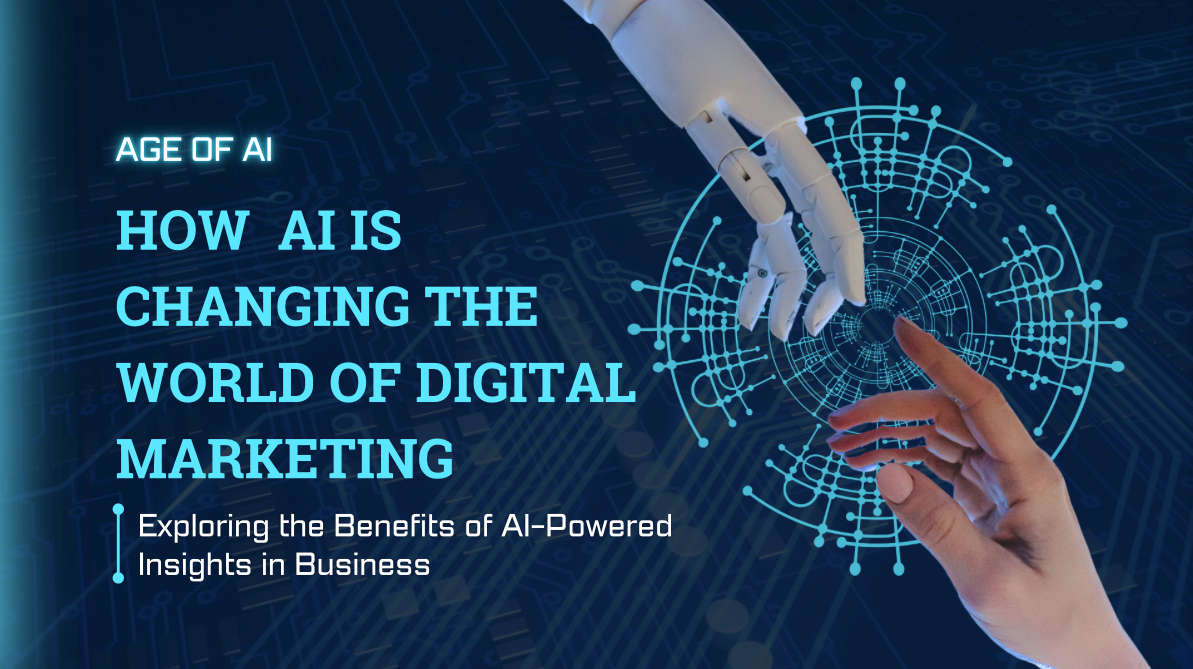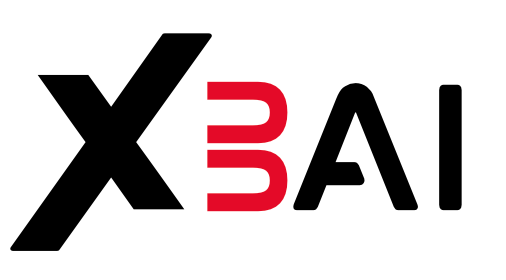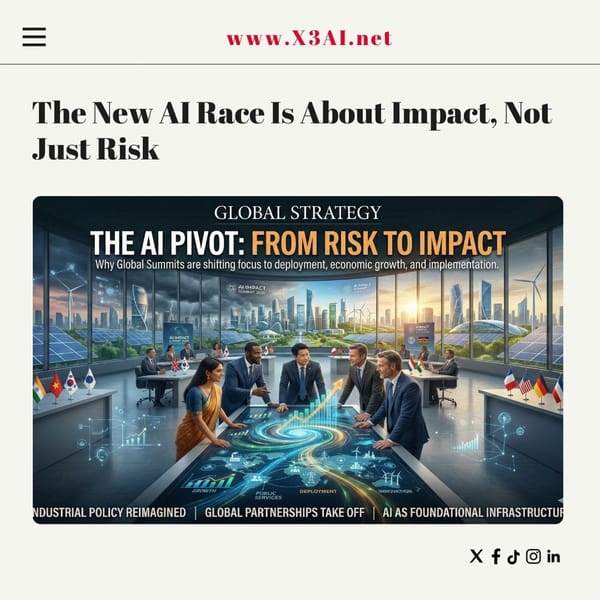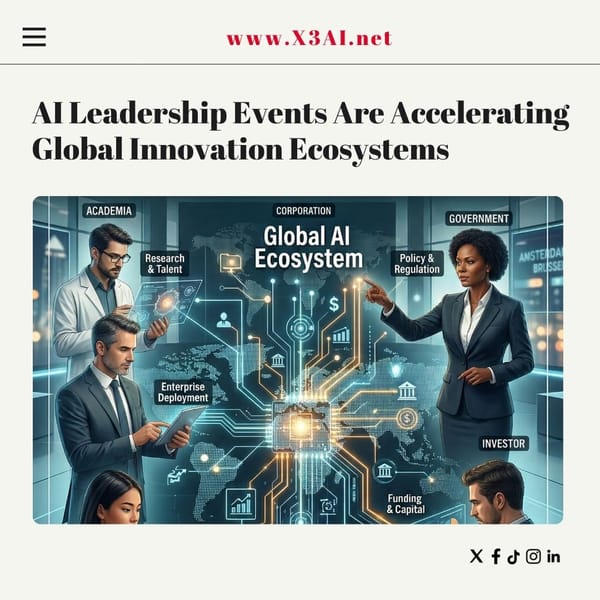How AI Is Changing the World of Digital Marketing

Exploring the benefits of AI-powered insights for business
Artificial intelligence has stopped being a futuristic promise and is now a core engine of modern marketing. From hyper-personalized customer journeys to automated creative scale, AI is reworking how brands discover opportunities, decide where to spend, and measure value. Below I synthesize the strongest, evidence-based benefits of AI in digital marketing and give practical guidance for leaders who want to turn AI insights into measurable business impact.
The promise: faster insights, better decisions, at scale
AI’s core value to marketing is simple: it extracts signal from enormous, fast-moving data and turns that signal into action. That covers everything from predicting which customers will churn, to generating email subject lines that raise open rates, to orchestrating which ad gets shown to whom and when. Gartner and other practitioners describe generative and machine-learning tools as the components that let teams “augment, accelerate, and create” marketing outcomes — not just automate repetitive tasks but also improve decisions across content, targeting, and operations. Gartner
Evidence from research: what the numbers show
A few large studies and industry reports make the business case concrete:
- Revenue lift from personalization. McKinsey’s research found that companies that excel at personalization can generate roughly 40% more revenue from those efforts than average players — and that moving to top-quartile personalization across industries could create over $1 trillion in value. That shows the payoff when AI enables truly individualized experiences at scale. McKinsey & Company
- Generative AI’s macro impact. McKinsey’s broader analyses estimate that generative AI and related technologies could unlock trillions in productivity and reshape marketing workflows—helping teams produce creative assets, customize offers, and accelerate campaign testing at much lower marginal cost. McKinsey & Company
- Adoption and activation gaps. Industry surveys (for example, Salesforce’s State of Marketing) report growing AI adoption—many marketers are experimenting with and using generative AI—but organizations still struggle with clean data, activation, and real-time orchestration, limiting how quickly insights turn into outcomes. Salesforce
- Strategy & capability guidance. Academic and practitioner pieces in Harvard Business Review and similar outlets emphasize that realizing AI’s benefits depends on matching AI use cases to business strategy, investing in data plumbing, and redesigning processes so human + machine workflows are complementary. Harvard Business Review
Five practical benefits AI delivers (with short examples)
1. True personalization at scale
AI replaces coarse segments with dynamic, individualized experiences — product recommendations, website content, emails and offers tuned to a person’s real-time behavior. The revenue uplift from doing this well is measurable (see McKinsey above). McKinsey & Company
2. Faster, cheaper creative production
Generative models accelerate the production of copy, ad variants, landing pages and even basic visual assets. That lets teams run many more A/B tests and iterate creative based on performance signals, shortening the learn-measure-optimize loop. McKinsey & Company
3. Better targeting and media efficiency
Machine learning improves lookalike modeling, bidding strategies, and ad placement by continuously learning which impressions lead to valuable actions—reducing wasted spend and raising ROI. AI also enables real-time programmatic optimization. Gartner
4. Actionable predictive analytics
Rather than descriptive dashboards, AI models predict likely outcomes—who will buy, who will churn, which offers will convert—so marketers can prioritize interventions with the highest expected return. Gartner+1
5. Operational scale and productivity
AI frees marketers from routine chores (tagging, report generation, basic copy drafting), allowing teams to focus on strategy and high-impact creative work. But the productivity dividend requires integration with workflows and guardrails for quality. Salesforce+1
How to turn AI insights into business results — an implementation blueprint
- Start with business outcomes. Pick one measurable objective (e.g., increase repeat purchase rate by X%) and a small, high-value use case (product recommendations, churn prevention, or creative testing). Harvard Business Review
- Fix the data plumbing first. Real-time signals and a unified customer profile are prerequisites—many organizations say data availability and activation (not the models themselves) are the main blockers. Salesforce
- Use human-in-the-loop systems. Let AI suggest and humans approve (for creative, messaging, compliance) to preserve brand voice and legal safety. Harvard Business Review
- Measure incrementally and hold experiments. Run controlled experiments (A/B or randomized holdouts) so you can credibly attribute lift to AI interventions. McKinsey & Company
- Invest in skills and change management. Hire or upskill data engineers, ML-aware marketers, and analytics translators who can connect models to commercial actions. Harvard Business Review
Risks, ethical concerns, and common pitfalls
AI is not a plug-and-play silver bullet:
- Data privacy and compliance. Personalization must respect privacy laws and user consent; overreach harms reputation and risks regulation.
- Bias and poor training data. Models trained on biased data can amplify unfair outcomes (e.g., excluding certain groups from offers).
- Over-automation and loss of brand voice. Relying exclusively on machine-generated copy can dilute brand identity unless humans set style controls.
- Measurement traps. Without experimental rigor, apparent gains from AI may be confounded by seasonality or channel shifts.
Acknowledging these risks and setting governance, explainability, and privacy standards upfront is essential. Harvard Business Review+1
Quick checklist for marketing leaders (practical)
- Define the business KPI you’ll optimize.
- Audit your customer data: completeness, freshness, governance.
- Pilot one AI use case with a controlled test and a rollback plan.
- Implement review workflows for AI outputs (brand, legal, accuracy).
- Track ROI and scale only when lift is proven.




